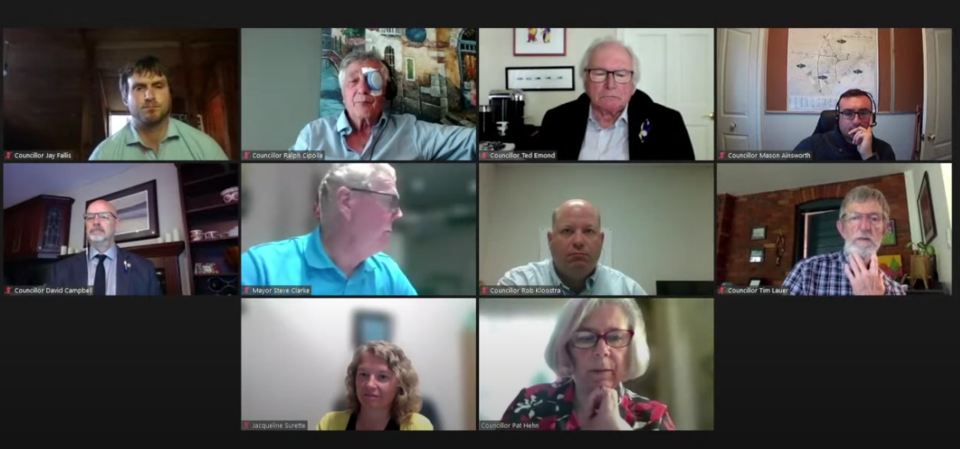Orillia is creating an equity, diversity and inclusion roundtable following months of work and public consultation by council members, city staff, and community members.
Council recently directed city staff to work with Orillia’s marginalized communities to establish the roundtable, with the goal of supporting these communities while also informing the city’s strategies to combat racism and build a more inclusive and welcoming community.
The roundtable could, for example, assist with include fostering education and awareness through training for city staff, businesses, and community members, suggesting policy changes and employment practices with an eye for inclusivity and equity, offering cultural festivals and events, and more.
On Thursday, council decided to seek a recommendation on plans for inclusive crosswalk paintings at the intersections of Mississaga St. W. and West Street from the roundtable once it is officially formed.
A request for an advisory committee was initially proposed by BIPOC (black, Indigenous, and people of colour) community members and brought to council in an inquiry motion by Coun. Jay Fallis.
The city established a working group in October 2021, with Coun. Pat Hehn and Fallis appointed as its council representatives.
“Such a group can help ensure there is a sustained voice within our community for those historically marginalized, underserved, and underrepresented, that is connected to the municipality, and that can support and advocate for ongoing change,” a staff report stated of the roundtable.
As part of their work, the working group examined programs across 29 municipalities, hosted two community forums and surveyed the public to identify issues that need to be addressed in Orillia.
With 119 survey respondents, the top four reasons listed for doing this type of work include addressing hate and discrimination in the community, making Orillia a more welcoming place, creating a sense of belonging for all residents, and influencing policy and procedure.
A desire for an external, relatively independent roundtable emerged out of the consultation process, the staff report noted, similar to the city’s cultural roundtable and physician recruitment and retention committee.
“The nice advantages of a round table is that you don't necessarily have to set the membership very specifically as you would in an advisory committee, so we can grow,” said Jacqueline Surette, the city's manager of culture at a recent council committee meeting.
“What we've seen in Collingwood is how that group has grown and evolved and added more members, and some members have come and gone as the needs change within the community.”
As a roundtable, the group’s membership and procedures will be subject to less governance by the city than an advisory committee.
“While an advisory committee can make recommendations to council, they are ultimately directed by council. Concerns with this model were raised via consultation, and included the influence of unconscious bias, systemic racism, and political agendas on the committee,” the staff report noted.
"The rigid institutional structure may also be at odds with the mandate of a committee seeking to support and amplify voices that have historically been oppressed.”
The motion passed by council also requests the roundtable to consider a city staff member to serve as a liaison between the two organizations, and that any additional costs, including staffing, be forwarded to the municipality's 2023 budget deliberations.
Hehn and Fallis stressed the importance of the roundtable, given concerns raised by the city’s marginalized groups through the public consultation process.
“What saddened me were the number of comments, such as Orillia has an unwelcoming reputation amongst newcomers; racism is the real core of problems for the issues faced by BIPOC members; new Canadians are hesitant to come to Orillia … and there were many more,” she said.
“I realized that as I sat in my white Ivory Tower, (thinking) we all treat each other equally … in fact, that obviously is not true and we have a long road ahead of us," said Hehn.
“That's something maybe many of us weren't aware of, and hopefully a committee of this nature could help to address that to make our community more welcoming,” echoed Coun. Jay Fallis.
“I'm really encouraged by the report, and I think the way the report is written is going to help ensure that the roundtable is given the freedom to take on projects to determine its own path, as well as membership," said the Ward 3 councillor.
Fallis added that a positive relationship between the city and the roundtable will help make Orillia a better place.
“I believe that these two entities can mutually benefit from each other, of course, so having a designated staff person to liaise between and provide support will be really helpful in this regard,” he said.
“I'm also hopeful that with this recommendation we can get the best from the best of both worlds: a committee that can take on the tough issues and help the city itself improve as well as becoming a more welcoming place for members of the BIPOC community.”
